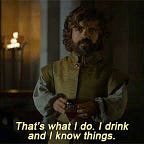Improvement
My First Over the Board Tournament!
4 decisive games you can learn from
My first article in Getting into Chess over 2 years ago was very cathartic. In retrospect my realizations on time management were very obvious, but the lens of chess illuminated them to me in the most clear way.
Over time, I felt a mounting uneasiness about coming to such a deep, personal realization without being as deep into the game itself. I’d play occasionally online and watch a lot of videos but I never had any skin in the game with over the board tournaments.
With this feeling and the mounting need to find more people to talk about chess with, I decided to find a local chess club near me. After playing a few pickup games and finding a mentor, I mustered the courage to actually play in a rated tournament.
My start was great! I won 8 out of 10 games and also won in my rating division. Unsurprisingly, I have learned more in these new games. Anyone new to over-the-board games can benefit from seeing what I learned in these 4 decisive games.
Game 1 — Use Chess Psychology
My first game was rough. That’s the opposite of what you would expected in a typical Caro Kann but there I was in the above position as black. I had messed up my lines in the opening, my king was exposed and my knight on c3 was being attacked.
Up until this point I was reacting to my opponent’s moves and had had enough, so in the above position I played Rb2. I noticed it took a while for my opponent to respond (even after the game he mentioned how taken aback he was by the move). Eventually I managed to trade all the pieces off and get into a winning endgame.
I traced the source of my win to the courage to take the risk of temporarily sacrificing my knight. Although analyzing the game with a computer would show that the move was not the best, I wasn’t playing against a computer. People are much more fallible and that can be used to your advantage. I continued to use that insight in my future games in the tournament.
Game 2 — Don’t resign early
You’d think I would’ve learned from my first game, but no. In the above image you can see again I had gotten into another losing middlegame from the Caro Kann. This time it was even worse as my kingside was exposed too.
As black, I considered resigning. Instead, I paused to refresh my mind, think back to other games I had recovered from and came back to the same idea: trade and simplify.
I eventually found a way to push his rook on the 6th rank back, trade most of the pieces and get into an even endgame. Eventually, I ground the endgame down to a winning position due to my opponent getting low on time and making a few mistakes along the way. I was skating on thin ice but I made it. I won again.
Game 3 — Have patience
The endgame you see above resulted from me playing a wonderful line in the Colle System for 3 hours. It was my longest game yet. I was up a pawn in a winning endgame and my brain was fried. At this point I was blitzing out moves so much and thought that I would draw the above game.
I lazily played Ke4 but my opponent in turn blundered and played h6. This allowed me to get a past pawn on the queen side and win the game.
After the game, all the onlookers immediately pointed out the major mistake and let me know how close I was to bottling it. After that, I made sure to take time between moves to clear my mind and think instead of blitzing out moves.
Game 4 — Eventually your luck runs out
At this point in the tournament my fatigue had grown. I stopped analyzing my prior games and didn’t practice as much before. My other excuse was that I had won my division and didn’t need to put in as much effort, but these were all excuses.
Despite not knowing the opening theory, I found myself in the above position with black and had a winning tactic (see if you can find it).
However, I missed the tactic (Bxg5). Then I spent the whole game playing passively and eventually hung my queen — I was not playing my best. Maybe my luck finally caught up to me, or the fatigue or the hubris. Regardless, I ended in a dreaded loss. It didn’t sting as much as I thought it would.
I played and won other games more soundly but these games are what I recall most deeply when I think back to that tournament. Over the board chess was tough to get into but this tournament provided me with a great experience. It really challenged my pride and inspired some courage. I hope to play more and continue to learn and share .
You can checkout each game in the hyperlink under each image. Please let me know any other over the board lessons you have learned as well.
I hope you enjoyed this article. If you did, consider subscribing to Getting into Chess and follow me for more chess related articles in the future.
